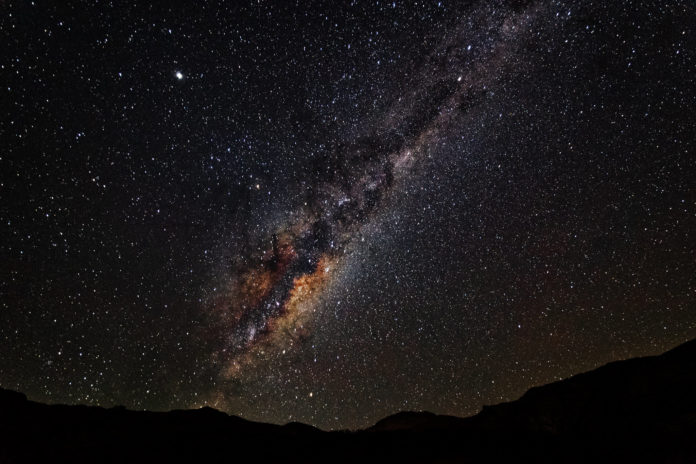By: Nick Gambino
Quick explosions of radio waves have been detected out in the vast expanse of space over the last decade but only now are we starting to get an idea where they might be coming from. Fast Radio Bursts (FRBs) have now been detected in our own galaxy, the Milky Way, allowing astronomers to find out what the source might actually be.
There have been many theories as to what might be causing them, from collapsing stars to alien technology, but because they appear billions of miles away in far-off galaxies and only flash for a few milliseconds, it’s been difficult to study them in any depth.
It looks like they’ve found a more probable cause from FRBs located in our own galaxy. According to scientific papers, these radio bursts are coming from a neutron star with a strong magnetic field called a magnetar.
“Before this one, we have been just guessing, guessing, guessing,” Bing Zhang, an astrophysicist at the University of Nevada told Popular Science.
This magnetar is “only” 30,000 light-years away, which is pretty close, relatively speaking. While this is by no means a complete illumination of what causes FRBs, it at least cracks the door open to understanding these strange cosmic phenomena.
“This is the missing link,” Kiyoshi Masui, an MIT assistant professor of physics, told The Verge. “Now we’ve seen a fast radio burst coming from a magnetar, so it proves that at least some fraction of fast radio bursts we see in the universe come from magnetars.”
Unfortunately, the FRB in our galaxy wasn’t as strong as some others detected in galaxies outside of ours. In fact, it was significantly weaker. The burst of X-rays and gamma rays emanating from the magnetar were strong enough to be picked up by multiple telescopes and were even bright enough to be picked up by a 4G LTE receiver, but there are much more powerful ones appearing in the cosmos since the first detection in 2007.
We’ll see what this new discovery brings us, but for now, this is super exciting news for those who look to the stars for answers about our own universe.











[…] Click here to view the original article. […]
[…] Click here to view the original article. […]
[…] Click here to view the original article. […]
[…] Click here to view the original article. […]
[…] Click here to view the original article. […]
[…] Click here to view the original article. […]
[…] Click here to view the original article. […]
[…] Click here to view the original article. […]
[…] Click here to view the original article. […]
[…] Click here to view the original article. […]
[…] Click here to view the original article. […]
[…] Click here to view the original article. […]
[…] Click here to view the original article. […]
[…] Click here to view the original article. […]